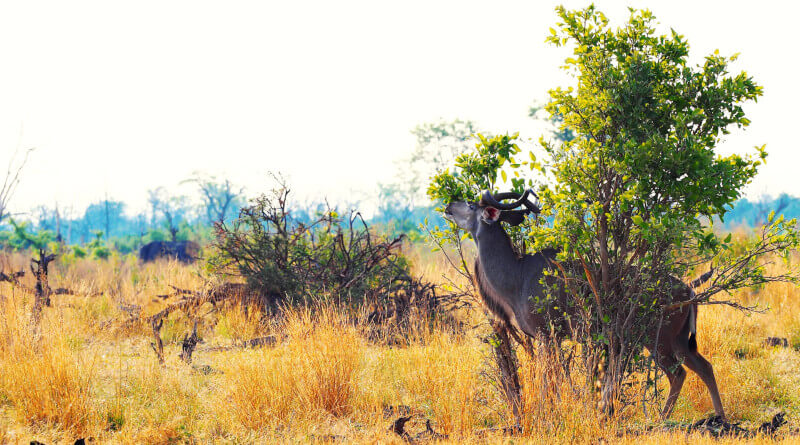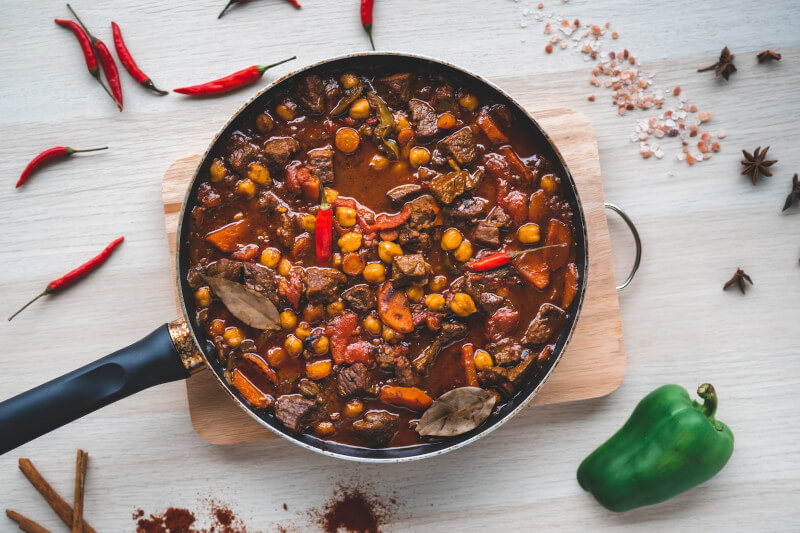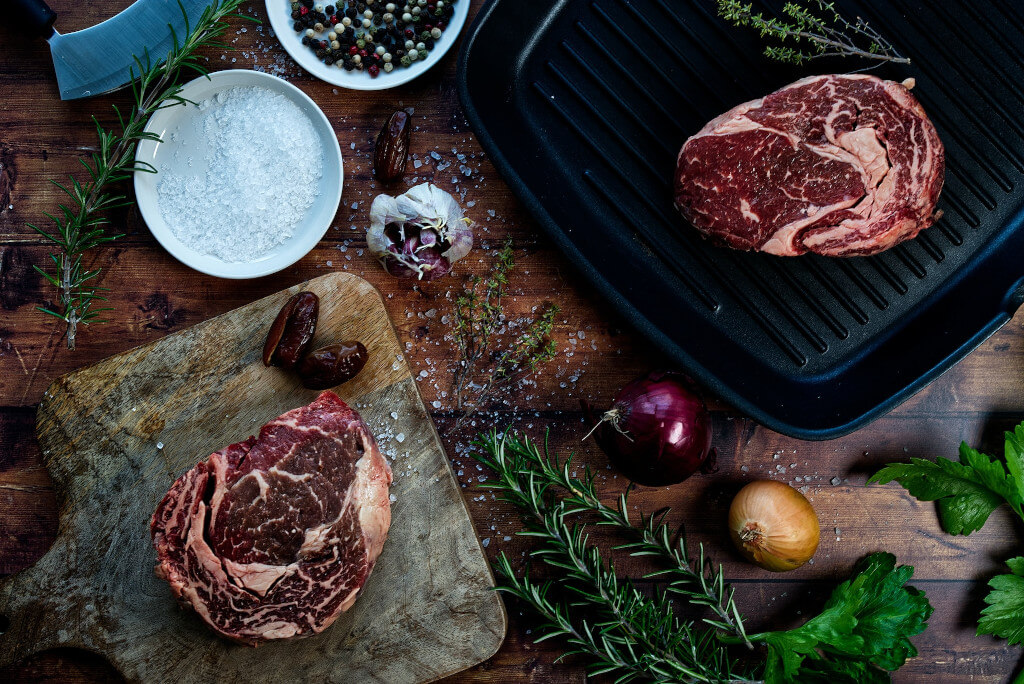Because of its unique geography and abundance of wildlife, South Africa’s cuisine features a wide variety of bold flavours. The cuisine of this land of savannas, woods, and coasts is as diverse and exciting as its landscape. And at the centre of this colourful tapestry lies game meat, which is a perfect metaphor for the untamed spirit of the country.
Ingestion of Wild Game in a Moral Manner
When exploring the world of game meat, it is extremely important to know the origins of our food. The ethics of conservation and responsible hunting are at the forefront. Well-regulated hunting, according to discussions with local environmentalists, can help maintain animal populations. Hunting is a major source of funding for conservation and anti-poaching initiatives. As a result, you can help further the common good by only purchasing game meat from businesses that adhere to strict ethical standards.
Sustainable Hunting Practices
The principles of sustainable hunting are far-reaching and deeply nuanced. Beyond the idea of just conservation, sustainable hunting also concerns the local community’s socioeconomic wellbeing.
Community Involvement and Benefits:
Communities often play an integral role in game management. Their involvement ensures not only the conservation of wildlife but also their sustainable use, offering economic opportunities. For instance, in several South African communities, revenue from hunting licenses funds local schools, healthcare, and infrastructure projects. Thus, ethical hunting practices can catalyze holistic community development.
Habitat Management and Preservation:
Sustainable hunting promotes balanced ecosystems. By keeping certain animal populations in check, habitats can flourish and maintain their biodiversity. For instance, overpopulated species might graze too heavily on specific vegetation, leading to long-term environmental damage. Sustainable hunting practices can help alleviate such pressures, ensuring that ecosystems remain vibrant and balanced.
The Economic Impetus of Conservation

The link between ethical game meat consumption, hunting, and conservation has monetary facets that can’t be overlooked.
Tourism and Game Hunting:
Hunting, especially when ethically practiced, attracts a significant number of international tourists to South Africa. These hunting tourists often spend more per capita than regular tourists, boosting local economies, especially in areas not frequented by the traditional safari-goer.
Reinvestment in Conservation:
Much of the revenue from hunting licenses and conservation fees is plowed back into conservation efforts. This creates a virtuous cycle: the more the game is hunted sustainably, the more funds are available for habitat restoration, anti-poaching patrols, and community outreach programs about the importance of preserving local ecosystems.
Delving into Game Meat’s Unique Offerings
Eating game isn’t just about venturing out of your comfort zone; it’s also a nutrient powerhouse, with flavours that are intrinsic to the ecosystems in which the animals live. “Compared to conventional meats,” says dietitian Dr. Mpho Tshukudu, “game is typically leaner and richer in essential nutrients like Omega-3 fatty acids.” Wild food and environment contribute to the unique flavour of each game meat, from the flowery overtones of springbok to the earthier undertones of kudu. To perfect the art of game cooking, one must strike a balance between honouring the meat’s natural flavour and adding new, complimentary notes.
Restaurants Leading the Pack: Pioneers in Game Meat Cuisine
Several restaurants have risen to prominence, not just for serving game but for innovating and elevating these meats to gourmet standards. The Bushveld Bistro in Pretoria, for instance, wows diners with its Warthog Wellington. Meanwhile, Karibu in Cape Town offers a tantalizing ostrich bobotie, blending traditional and contemporary techniques.
Chef Lwazi, of the famed Savanna Grill in Durban, shares, “It’s about respecting the ingredient. We aim to showcase game meat in ways that both honor our traditions and resonate with modern palates.”
Game Meat for Beginners

Embracing the world of game meat for the first time can feel a bit like diving into an uncharted culinary territory. The unique textures and flavors, different from common meats like beef or chicken, may raise eyebrows of intrigue. Yet, the richness and depth game meat brings to your plate are unparalleled. So, how does a newbie start experimenting with cooking game meat? Here are some fresh ideas:
Start Small: Before venturing into more exotic varieties, begin with milder game meats. Springbok or impala are good entry points, offering a subtle introduction to game’s distinct flavor profile.
Game Meat Skewers: Kebabs or skewers are a delightful way to get a taste. Marinate chunks of game meat in herbs, spices, and a touch of citrus or vinegar. This not only tenderizes the meat but also imparts a burst of flavor. Grill them to perfection for a delectable bite.
Join a Cooking Class: Many culinary schools and chefs in South Africa now offer specialized classes focusing on game meat. Learn from the experts about marination, tenderizing techniques, and the right cooking temperatures to ensure your game meat remains succulent.
Visit Local Markets: Farmer’s markets can be an excellent place to interact with vendors who often have hands-on experience with game meat. They can provide insights, share personal recipes, and even give you a heads up on which meats are fresher or in-season.
Experiment with Stews and Curries: Game meat, particularly the tougher cuts, lend themselves beautifully to slow-cooked dishes. A rich, hearty stew or a spicy curry can mask any overwhelming flavors and make the meat tender and delicious.
Incorporate Familiar Flavors: If you’re hesitant, pair game meat with familiar sides or sauces initially. Think game meat sliders with a tangy slaw or a kudu steak with a pepper sauce.
Mapping Out Your Next Culinary Adventure
For those ready to embark on a culinary safari, here’s a brief map to guide your gastronomic adventures:
– Gauteng: Check out The Carnivore in Muldersdrift, an experience akin to an African feast.
– Western Cape: The Game Meat Restaurant in Stellenbosch offers an extensive menu, from crocodile to zebra.
– KwaZulu-Natal: Savanna Grill is a must-visit, boasting a fusion of flavors and innovative game meat dishes.
Treading Lightly on Culinary Adventures
There’s no denying the attraction of South Africa’s culinary wonders, particularly in the realm of game meat. Restaurants serving game meat are a celebration of the country’s diverse cultural traditions and the bounty of its natural resources. It’s important to keep in mind the weight of responsibility that comes with exploring this tempting new world. Conservation, ethics, and consumption all have intricate relationships with one another. In order to fully value and sustain the game meat sector, educated consumers are essential. Let’s make decisions that will improve communities, protect wildlife, and guarantee that future generations will be able to enjoy gourmet safaris in South Africa just as much as we do today.
There’s no need to be intimidated by the prospect of cooking game meat. South African game has a wide variety of flavours that can be enjoyed by those who are willing to try new things. With little exploration and bravery, you can learn to prepare delicious recipes with game meat.

